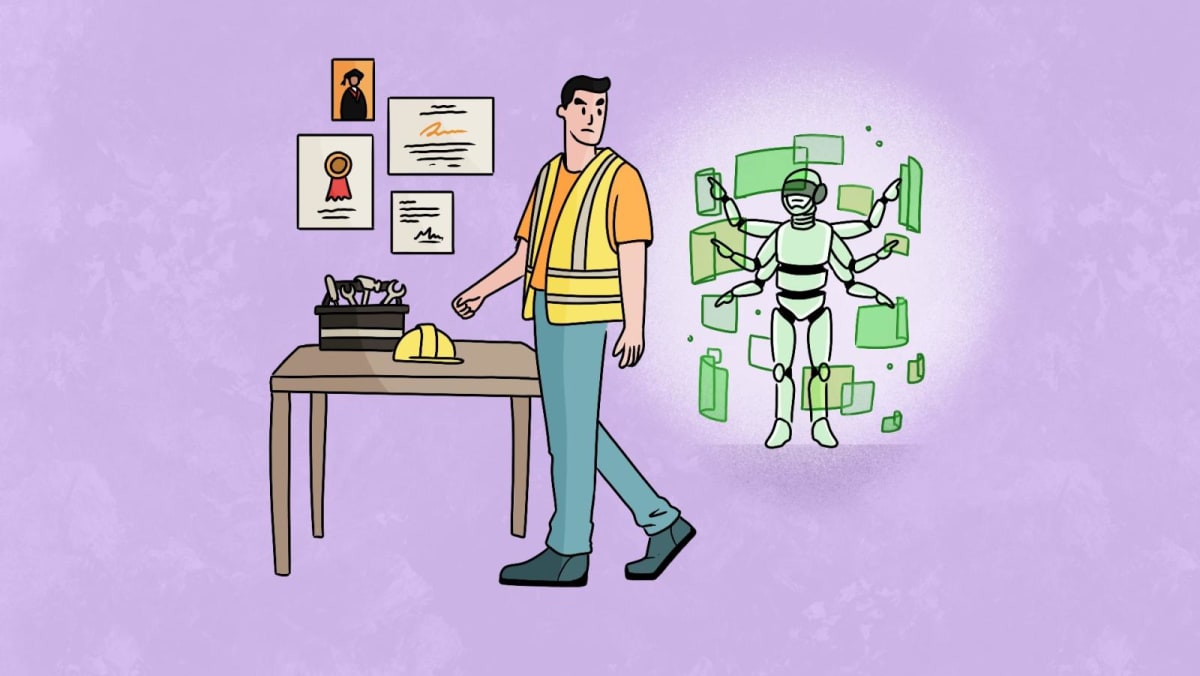Not too long ago, having a diploma or degree was a guarantee of a corporate job and a climb up the professional career ladder.
But these days, with generative artificial intelligence (AI) and other technologies disrupting and restructuring industries once considered prestigious and stable, such as technology and finance, there has been a growing anxiety among young people about whether they should enter these fields – if they can even find a foothold in the first place.
Earlier this month, The New York Times described how computer science graduates in the United States, who took up the field of study barely a decade ago while banking on promises by technology honchos of lucrative salaries and excellent career prospects, are now finding it difficult to get employed.
Due to the proliferation of AI programming tools, companies can now afford to do away with junior software engineers, eliminating entry-level jobs. As a result, graduates of the once-coveted majors of computer science and computer engineering are seeing some of the highest unemployment rates among fresh graduates, The New York Times reported.
When asked for his advice on facing the world today that is full of job displacements, Nobel Prize-winning computer scientist Geoffrey Hinton – known to many as the “Godfather of AI” – said in a podcast in June: “Train to be a plumber.”
And it seems that some young workers are taking this advice to heart.
In the US, 37 per cent of young adults from Generation Z in their 20s now who have bachelor’s degrees are pursuing blue-collar or skilled-trade jobs. This is based on a survey in May of around 1,400 Gen Zers by Resume Builder, an online platform that provides resume templates and other resources for jobseekers.
Of those who were pursuing blue-collar work, 30 per cent said that such trade jobs have better long-term prospects, while 25 per cent said that such jobs are less likely to be replaced by AI.
Another survey in June by Zety, another online site that provides resume templates, painted a similar picture: 65 per cent of 1,000 Gen Z workers who responded said they did not believe that a college degree offers protection from AI-driven job loss.
Like their American counterparts, Gen Zers in South Korea are also shifting towards blue-collar work, with 63 per cent of them viewing such jobs favourably, while applications to vocational schools and the number of young people holding trade-skill licences are on the rise, Korean news media site The Chosun Daily reported in May.
In Singapore, recruiters who spoke to CNA TODAY differed in their observations on the extent of degree and diploma holders taking up blue-collar work here, or even if it is happening at all.
For instance, job-search site Indeed has no data to show a clear trend of this phenomenon at this point, its representative Saumitra Chand said.
Others who are seeing such a movement are attributing it to the challenging job market pushing jobseekers into blue-collar work, rather than the jobseekers seeing manual work as an attractive refuge from AI-led disruption.
In any case, if AI-proofing one’s career is the biggest concern, labour and human resource (HR) experts are advising against being too hasty in following the footsteps of American or South Korean workers in swopping suits and laptops for gloves and toolboxes.
This is because, at the most basic level, the conditions that make blue-collar jobs more alluring in other economies may not necessarily apply in Singapore, they said.
Another reason: It goes without saying that AI and technology are so pervasive, they will likely disrupt – or even replace – blue-collar jobs that are still untouched today.
So, if both white-collar and blue-collar jobs are susceptible to disruption, albeit in varying degrees, how then can Singaporeans find stability in their career paths?
